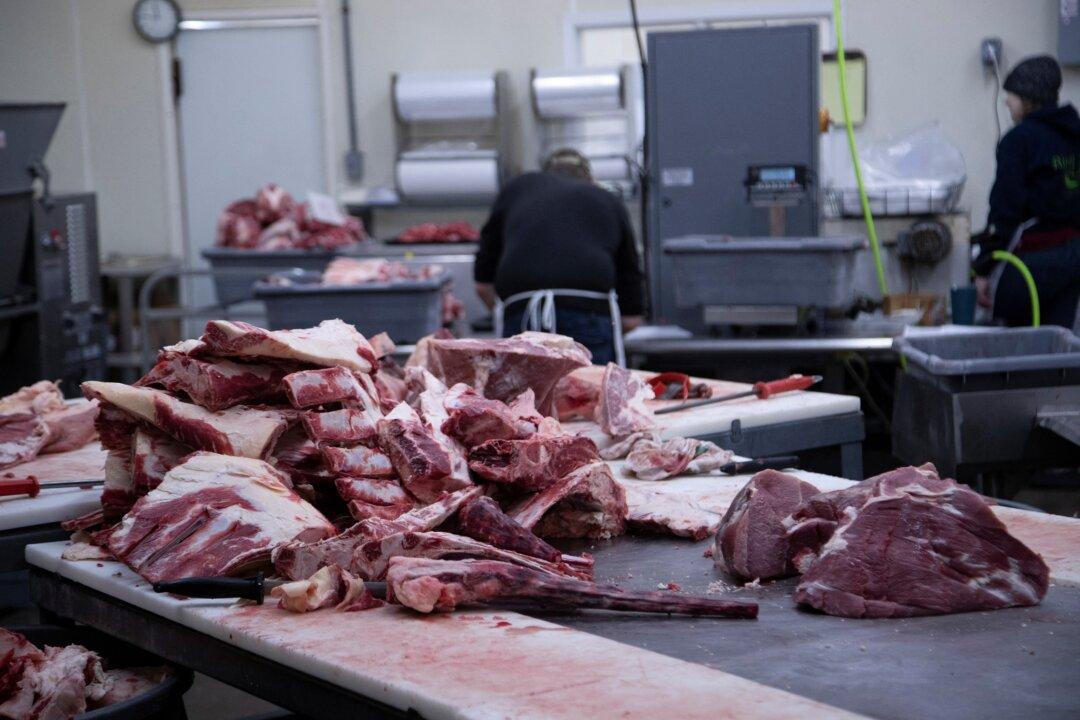BEIJING—Chinese farmers besieged a brewery to protest against pollution and being left out in the economic cold—common complaints in the restive countryside, local people said on Sunday.
Villagers in the southwest province Sichuan blocked the gate of the brewery and a nearby road close to Shifang city on Thursday and Friday, demanding that officials and executives resolve their grievances, locals told Reuters by phone.
“There’s been a lot of trouble,” said one villager who gave her family name as Huang. “They weren’t listening and so we blocked the road.”
The villagers’ complaints could not be verified and the brewery was not taking calls on Sunday.
But the protest was another sign that anger about environmental damage and economic inequality continue to fuel unrest while the ruling Communist Party promises a fairer “harmonious society”.
The Hong Kong-based Information Centre for Human Rights and Democracy, which often reports on unrest, said in a fax that hundreds of riot police dispersed the protest by up to 5,000 people, arresting seven, and that 20 people were injured.
Villagers told Reuters there were 1,000 to 2,000 protesters despite heavy rain.
“It’s basically quelled now,” an official at the nearby Yuanshi town government told Reuters. He said several protesters had been detained but had already been released.
“It was mainly over water pollution. Five villages were polluted,” he said. He would not give his name.
Villagers said run-off from the brewery had damaged crops and tainted underground water that supplies wells.
They said there was also anger among farmers and employees about the recent sale of the brewery, in which they claim a stake. “They didn’t share the money with the farmers. It’s unfair,” said Huang.
“The brewery boss is rich now,” said another villager surnamed Ye. “But what about the villagers?”
Controlling Interest
The plant is run by the Blue Sword Brewery group, which is owned by a joint venture of Hong Kong-listed China Resources Enterprise and SABMiller Plc.
Their joint venture, China Resources Snow Breweries—in which SABMiller, the world’s No. 2 brewer, owns 49 percent—bought a controlling interest in Blue Sword in January for 2.5 billion yuan ($320 million).
“It was sold off but we didn’t get anything,” Huang said.
Another local said senior managers received big payments after the sale, but residents who had invested to build the plant in the early 1980s or who worked there had not received their due.
Calls to the brewery and the Blue Sword headquarters were not answered, nor were calls to China Resources in Hong Kong. A spokesman for SABMiller said the pollution claims were being investigated.
A widening gap between rich and poor, corruption and official abuses have in recent years fuelled growing numbers of demonstrations, riots and other forms of what the government calls “mass incidents”.
The government has channelled more spending to the countryside and told officials to defuse discontent over pollution, corruption and lost land. Officials say this effort is paying off and the number of protests has been falling.
A senior rural policy adviser earlier this year estimated the number of “mass incidents” in both rural and urban areas had fallen to about 23,000 last year from 26,000 in 2005.




